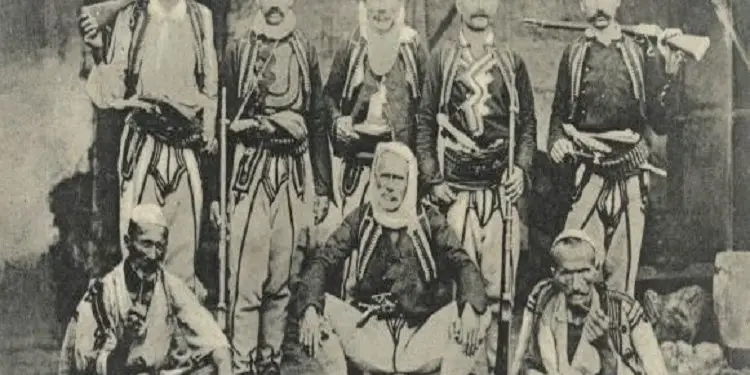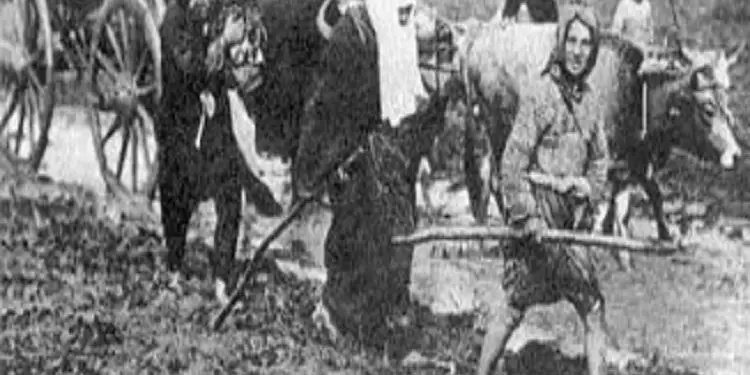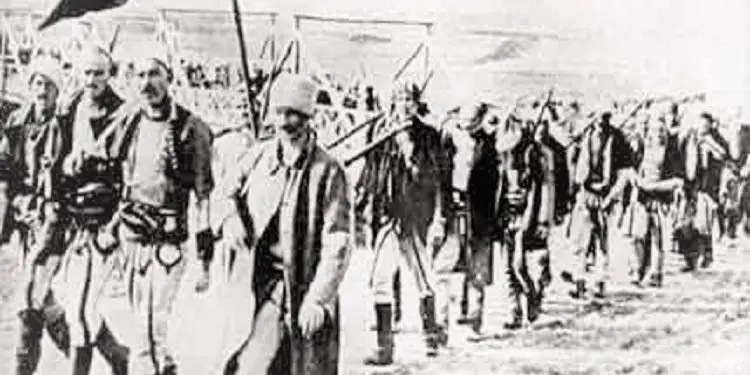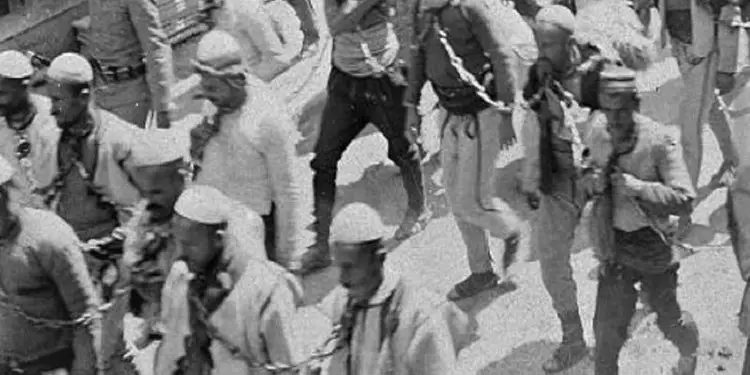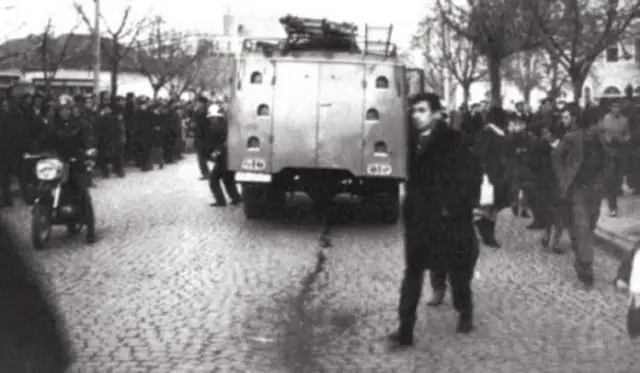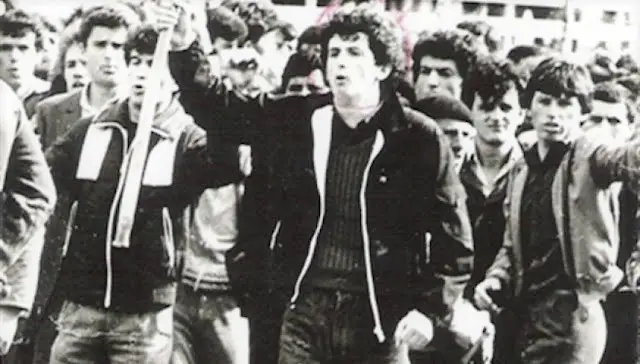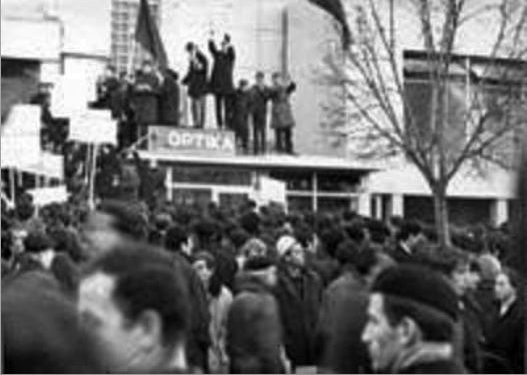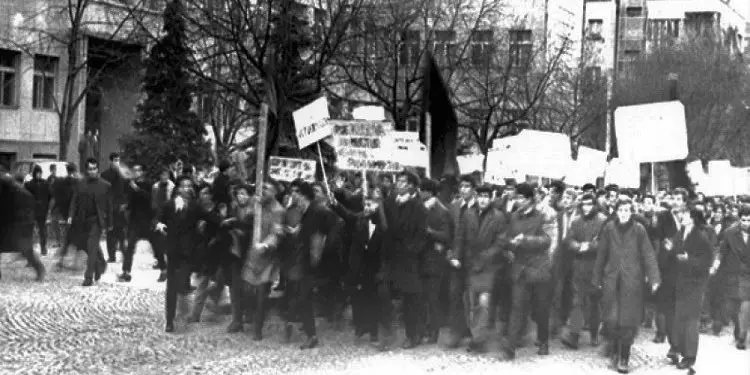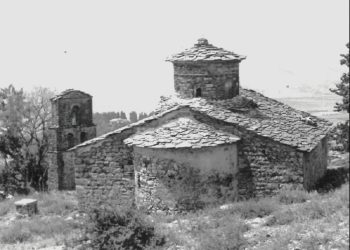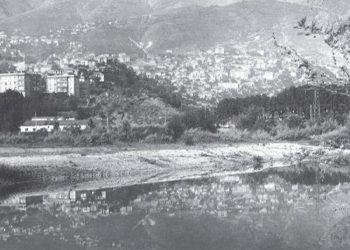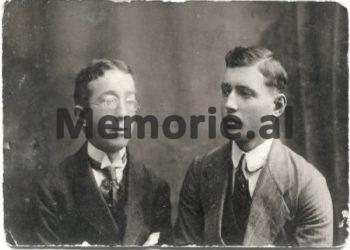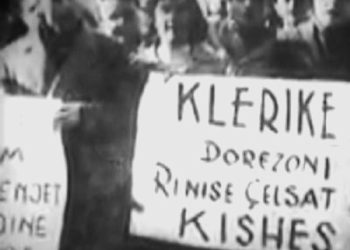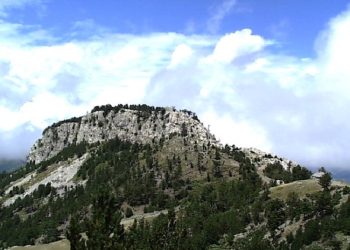From Bashkim Trenova
Part twenty-four
MYTH-MYSTICISM, VICTIMOMANIA, RACISM AND SERBONOSTALGIA
ALBANIANS ACCORDING TO THE SERBS
(THE EASTERN CRISIS AND THE BALKAN WARS)
Memorie.al / “Serbs are descended from the Slavs, a large number of tribes who gave life to the Slavic peoples. Knowledge about the origins of the history of the Slavs is modest and not so clear. Their name appears for the first time in the 6th century AD, when Byzantine writers start talking about the Slavs….”! (Dushan Bataković, Milan St. Protic, Nikola Samardžić, Aleksandër Fotic. History of the Serbian People. L’Age d’Homme. Lausanne. 2005. Pg. 3.)
Continues from last issue
I supported the independence of Kosovo in 1972 and I became fully aware of this in prison, after talks with imprisoned Albanians. There I realized that it was a colonial problem, that Kosovo was a stolen part of the Turkish Empire, which was later unsuccessfully colonized twice by Serbia. There is no big difference between Algeria and Kosovo. De Gaulle was very smart. He realized that it was better for France to give freedom to the Algerians. Then his French, tried to kill him. You still have politicians in Serbia, who claim that it is “ours”! So how can we maintain this?! With six percent people?! This is a colony where power can only be held by force. (2)
—
Kosovo is not part of Serbia, as claimed by those who say that it has always been part of Serbia, since it was part of Dushan’s empire. It is not known for sure if at that time it was inhabited mainly by Serbian tribes, as we want to believe, because then there was no definition of the village according to ethnicity, but mainly by which feudal lord owned it. Thus, we cannot define Kosovo with complete conviction as a natural and ethnic part of Serbia.
The myth of Kosovo develops when a unique opportunity arises for the newly enthroned monarchy of Karagjorgjevic to expand its territory in parts, which it had not had since the middle Ages, and which became easily accessible with the fall of the Turkish Empire. For this you had to somehow motivate people, give them something that serves as a good basis for war. Thus, Kosovo was treated as an ancestral homeland since feudal times and which, of course, belongs to Serbia. So, the two Balkan wars were entirely of a territorial and conquering nature. The Serbian population of Kosovo at that time was clearly a minority. That part of the Albanians, who protested against the Serbian government, was called Kacaca, outlaws.
Serbia attempted to colonize Kosovo with Serbs immediately after the Balkan wars and continuing after the First World War. These two colonizations, which numbered about fifty thousand souls, war veterans, whose families received the land that the state had taken from the natives, constituted the core of the Serbian population in Kosovo. And the government relied on this core. What was our attitude towards cultural rights, ethnicity, education and everything else in Kosovo, we know better from Dimitrije Tucovic’s writings, to which I have nothing more to add. (1)
1 – Lazar Stojanovic. Zabrane vode u lager. Otvoreno pismo drugu Ivici Dačiću, koji bi pradana da zabarnujuje. (Forbidden waters in the letter camp. Open letter to Ivica Dacic, who would again ban the inappropriate). Today 27.02.2008.
2-Lazar Stojanovic. Kosovo is already a Serbian colony. (Kosovo has always been only a Serbian colony). Jutarnji list. 1.03.2008.
****
Ljubinka Trgovčevič – historian and professor at the Faculty of Political Sciences at the University of Belgrade:
When the Albanian national idea was formed, which we call the project of greater Albania or ethnic Albania; it encountered the opposition of all the Balkan peoples. This is actually the only instance where all the Balkan nations had a negative attitude towards the creation of that state, because they had already drawn large maps themselves and, in a way, saw that space as their own, even shared it. Albanian space. No nation is lucky if it believes only in a few national myths and national ideas. First, we all have to convince ourselves that we are not the best. This is important.
Also, let’s understand that we are not the only ones who are right. And this is important. The same is the case with Serbian-Albanian relations. Our statements that we have never had negative thoughts towards the people of Albania, or our Albanians in Kosovo, turned out to be incorrect. This is incorrect because in reality, as soon as a moment of crisis comes, a bunch of people, who may never have met a resident of Kosovo, an Albanian or a resident of Albania, shout demanding the death penalty for Albanians and say ugly words for them. (1)
1 – Lazar Stojanovic. NATO has no alternative. (NATO has no alternative). Weather No. 1310. 11.02. 2016.
****
Milan Kosanovic – historian:
The lack of historical sources that we can rely on is a fundamental problem. Mavro Orbinj’s work, The Kingdom of the Slavs, thus represents the only source for certain periods of medieval Serbian history, such as, for example, the Battle of Kosovo. Therefore, the possibilities of verification are very limited. (2)
1 – Ljubinka Trgovčević: Projekt velike Albanije i velike Srbije nisu poštnost (The projects of greater Albania and greater Serbia do not belong to the past). Radio Free Europe. November 9, 2014.
2 – Milan Kosanovic. Myths, symbols, rituals. Le pouvoir historique des «signes» en Europe du Sud-Est aux XIX et XXe siècles. (Myths, symbols, rituals. The historical power of «signs» in South-Eastern Europe in the XIX and XX centuries), colloque, Bonn, 15-17 septembre 1997. Balkanology. Vol. II. No. 1.
****
Milan Vukomanović – professor of religious sociology at the Faculty of Philosophy at the University of Belgrade:
But the main religion in Kosovo is Albanian nationalism. This is a multi-religious society, where there are Orthodox, Catholics and Muslims. All those who try to see in Kosovo only the problem of Islamic fundamentalism or any kind of terrorism on this basis, are completely wrong. There we simply have a question of nationalism, which has its historical roots. The Wahhabis tried to impose something there, but the locals beat them and drove them out. They don’t have many chances in Kosovo, because as the Albanians say about themselves, they behave like Christians. Orthodox churches have not been the main target of Wahhabist attacks in Kosovo either, as they often try to tell us. (1)
****
Milosh Jagodič – University of Belgrade, Faculty of Philosophy:
The Serbian-Turkish war of 1877-1878 has been mentioned many times in Serbian historiography. However, it seems that war-induced migrations always took place in the shadow of military actions and their epilogue in Berlin. They were, in fact, larger and more important than usual. The view that 30,000 Albanians emigrated from Serbia remained unchallenged for almost a century. This number was higher: at least 49,000…(2)
1 – Milan Vukomanovic. Pobeda jaceg demokrate. (Victory of the strongest democrat). Radio Peščanik, March 23, 2007.
2 – Milosh Jagodic. The Emigration of Muslims from the New Serbian Regions 1877/1878. Balkanology. Vol. II, no. 2/1998.
****
Miodrag Jeremic – journalist, correspondent of Borba newspaper and representative of Serbian social democracy at the beginning of the 20th century:
These days there has been a lot of talk about the strategic points towards Albania, which should secure our territory. Strategic points no doubt say something, but however certain and rigorous they may be, they will never save us from the hatred and revenge of a nation insulted and sorely wounded. As long as such barbaric concepts will rule among our bourgeoisie; as long as even the most sober politicians will defend the thesis that Arnauts are half-human and that the Albanian question can only be solved with fire and iron, we will have mobilization after mobilization on the western border of the new territory and failure after failure .
And until then, the strategic points towards Albania will not help us, not to mention that we will need to constantly maintain, day and night, “strategic points” inside the country, through which we will slaughter and annihilate them hundreds of thousands of Albanians who live within our borders and who should be some false foundation of Greater Serbia. (1)
—
The school, at least from now on, must understand its national role in a completely different way. For a hundred years, she has fervently preached about revenge, she has forcefully preached the resumption of the Kosovo disaster. For so many years, during which many philosophical systems and concepts have appeared and disappeared among cultured peoples, she has developed “national feelings” in the Serbian tribe, especially through the revival of memories of the terrible catastrophes that have left behind all national cultural development. Her work was reflected in the rise of the cult of painful and bloody days.
There has never been a pedagogue who analyzed the national activity of the popular school in a fruitful national and economic-cultural direction, a pedagogue who analyzed the national activity of the popular school in a fruitful national and economic-cultural direction. Wars, which have had the effect of revolutionizing the relations of our time, are not taught as such.
Instead, hymns were sung in chorus about the mighty Serbian rulers, about their furious horses and swift langos. Never in this popular school has the panorama of the regimes, in which our past tsars won Serbian glory, been illuminated, not even approximately, has the life of the different levels of the social hierarchy been compared. These facts have been avoided, as they would give us the true state of these golden ages of our past. (1)
Wars, which have had the effect of revolutionizing the relations of our time, are not taught as such. Instead, hymns were sung in chorus about the mighty Serbian rulers, about their furious horses and swift langos. Never in this popular school has the panorama of the regimes, in which our past tsars won Serbian glory, been illuminated, not even approximately, has the life of the different levels of the social hierarchy been compared. These facts have been avoided, as they would give us the true state of these golden ages of our past. (1)
1 – Miodrag Jeremic. Borba, 16.2.1914. Pg. 147-149.
****
Mirjana Miočinović – Professor at the Faculty of Drama in Belgrade, theater expert, writer and translator:
Now I would like to say just a few words about the factual truths that refer to Kosovo, as I see them, in a broader and longer historical perspective. So, at least as far as I can remember, even 60 years after the war, we have treated Albanians as second-class people. We gave them the jobs we didn’t want to do ourselves, and then looked down on them because of it.
In the region where they lived in overwhelming majority, we ruled according to the principles of apartheid. We reacted with arrogance to the birth of their consciousness, like offended masters whose servants think of emancipation. In 1999, we tried to give a final solution to the Albanian issue according to the principle and means of punitive expeditions, mass liquidations, burning, looting and deportation of half of the population, confiscation of documents, with the hope that this would prevent their return.
So, it is a terrible fact, but we are the last ones who have the right to give moral lessons and consider Albanians as barbarians, whose actions we hate, being a supposedly very civilized people. And now you see that, since we have not accepted systematically, with forethought, to access these facts, we will experience a fatality, and that is the independence of Kosovo, as an undeserved punishment and as a serious violation of our rights, and we will end up in what is called falling into a deep depression, which will really completely destroy what little life potential we have now.
I’m not talking about the other consequences; we hate Albanians as barbarians, whose actions we hate, being a supposedly very civilized nation. And now you see that, since we have not accepted systematically, with forethought, to access these facts, we will experience a fatality, and that is the independence of Kosovo, as an undeserved punishment and as a serious violation of our rights, and we will end up in what is called falling into a deep depression, which will really completely destroy what little life potential we have now. I’m not talking about the other consequences, we hate. (1)
1 – Miodrag Jeremic. Borba. 16. 2. 1914. Pg. 147-149.
****
Mirko Djordjevic – Publicist, critic of the nationalism of the Serbian Orthodox Church and political intolerance in Serbian society:
Two roads are before the Church, that of clericalism and that of evangelization. Unfortunately, my Church has chosen that of clericalism, abandoning evangelism. Today the hierarchy and theologians advocate the establishment of a new “symphony”. We are dealing with a concept elaborated in the 4th century, which advocates close cooperation between the secular power and the spiritual power. Today the symphony is presented as the way of the future for the Church, when we are in the 21st century and when, on the contrary, it must be reflected in completely new terms for the place of the Church. (2)
—
“The time of the church is not that of the century”, underlines the sociologist of religions Mirko Djorgjevic in Belgrade. “The Church is convinced that it will one day return to Kosovo. But, waiting for this return in eschatological proportions, Kosovo will be the focal point of national-church preaching”. This is what the church should do today, and not sells people the fog that Kosovo is ours and will be forever. What to do with two million Albanians? (1)
1 – Mirjana Miocinovic. Osveta Kosovo. (Kosovo’s revenge). Radio Pescanik. 22. 02. 2008.
2 – Mirko Djordjevic. Serbian Orthodox Church: “Je suis un dissident!” (Serbian Orthodox Church: “I am a dissident!”) Religioscope, 13 octobre 2004.
—–
It is irresponsible to repeat “Kosovo is ours and will remain ours”. Well, Batajnica, please, it’s under my window, here it is. If not the prime minister in Belgrade, who will have the courage to kneel before these victims. And I tell you that these are not just ritual gestures. The man who would do this would be like Vili Brandti and the Albanians would forgive him. And without this forgiveness, there is no salvation for us. (2)
****
Momir Turudič – journalist and deputy editor-in-chief of the political weekly “Vreme”:
Albanians live in the Balkans, apart from Albania and Kosovo, also in Serbia, Macedonia, Greece and Montenegro. If we had to describe in a few words the common condition of the inhabitants of this area, we would have such a picture: anger, dissatisfaction, lack of hope for a better future. In such an atmosphere, the stories of “century-old enemies”, mostly neighbors, references to “our glorious past” and “their crimes”, are received by most much better than visions of a common future. (1)
1 – Mirko Djordjevic. Le rêve perdu de la “Grande Serbia”. (The lost dream of “Greater Serbia”.) La Libre. 15-02-2008.
2 – Mirko Djordjevic. Osveta Kosovo. (Kosovo’s revenge). Radio Pescanik. 22. 02. 2008.
****
Nebojsha Popov – assistant in the subject of General Sociology at the Faculty of Philosophy in Belgrade…:
Is the fear of real changes explained by a kind of apathy, or is it the fault of Serbian intellectuals themselves? We are not without something; on the contrary, we are for a lot. A good part of our intellectuals have participated in the process of “victimization” of the Serbian people, helping to create an ideology, which presents the Serbs as victims of history. (2)
****
Olga Popovic-Obradovic – Assistant Professor of History and National Law of the State:
Thus, after many wars, Serbia, constantly inspiring but also exploiting the myth and motto – Kosovo’s revenge, finally reached the Yugoslav state on December 1, 1918. (3)
****
Olivera Milosavljevic – historian, professor of social history at the Faculty of Philosophy in Belgrade:
The question about Kosovo is perhaps the most difficult question, but for one reason only – because it has been asked for more than a century and because the answers to it are generally wrong. They are set backwards because they were deeply intolerant, imaginary, exclusive and exercised through force. And now, after more than a hundred years of using unlimited force, as is usually the case in history, things have changed and this question arises again. A Serb from Prizren asked the same question to himself and others 110 years ago, but even then he gave an answer that no one wanted to hear.
He wrote: “We want to quarrel with the whole world….And then, like little children, we throw ourselves with our feet and hands, shouting to the heavens that the whole world is hostile to us, that we do not even want to we live, the less we develop and become stronger. If you sincerely want to help the Serbian people, you must give up all previous boasts, you must understand once and for all that Europe is not our Poturica, its decisions are not the decisions of a choir of our village. And, above all, it is worth rejecting calls for the use of violence; it is worth asking for your right and respecting the right of others”.
110 years ago, the quoted author gave the answer to the question, which still arises today, only, as he saw it, in a common homeland and in a mutual agreement, in tolerance and equality of rights. But no one has read his books and similar books. For a hundred years other books were read, which gave inflammatory and false solutions. That they were incendiary is proved by the thousands of houses constantly burning. That they were wrong is proved by human destinies, which belong to everything but normal life. And on the book of this author or others who thought like him, during this time the dust fell in the libraries. It will be even more dangerous if it continues to fall for the next 110 years. (1)
1- Momir Turudic. What are you doing in Albania – Serbian-Albanian relations. (What is Albania for you-Serbo-Albanian relations). Weather N.1242, 23/10/2014.
2 – Nebojsha Popov. Interview in Gazeta WyborezVarsovi. 10.01 2005.
3 – Olga Popovic – Obradovic. Osveta Kosova. (Kosovo’s Revenge). Radio Pescanik. 22. 02. 2008.
4 – Olivera Milosavljevic: Osveta Kosova. (Kosovo’s revenge). Radio Pescanik. 22.02.2008. See also Tema newspaper. 21.11.2015.
****
Rade Mihailčič – prof. of the Faculty of Philosophy at the University of Belgrade and member of the Academy of Sciences and Arts of Serbia:
The old Slavs found the native Illyrians in the Balkan Peninsula, who then split into several tribes, and one of these tribes survived. The peoples of Western Europe in the 20th century recognized this tribe with the name “Albanian”. However, natives who lived together in larger groups were not Slavized. Albanians preserved their language, customs, customs and other national symbols. A part of the arriving Slavs accepted the language and customs of the Albanians and assimilated. (1)
****
Radosh Ljušič – academic and historian:
The Serbian intellectual elite is deeply shocked by book advertisers, diploma shopping, plagiarism, bad mystery and doctoral theses, not only in private faculties, but also in state faculties. This wretched circle also includes works, which can be described as editorial, and which are written so that their authors can get some of the hard-to-get academic titles. One of the series of such books is that of Dusan Bataković, director of the Balkan Institute of SANU – Serbia’s Foreign Policy (1844-1867). Naçertanije by Ilija Garashanin, Belgrade 2014. (2)
1 – Newspaper Information; 23.02.2015. time.net. Topic – 10.08. 2015 and the World Today – 6.04. 2019.
2 – Radosh Ljušič: Bataković darovit prepisivač. (Bataković est un copiste doué – Bataković is a dedicated copyist). NEWS. 25.05.2016./Memorie.al
The next issue follows




